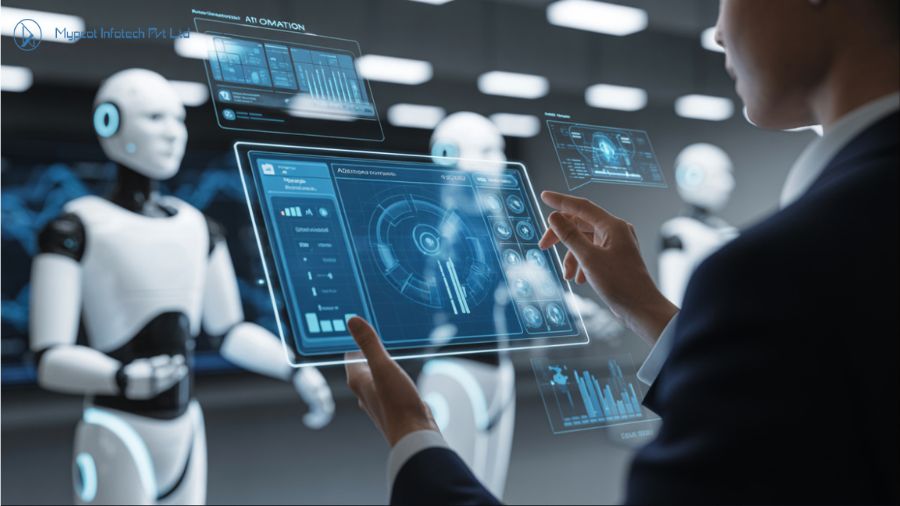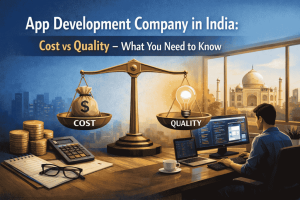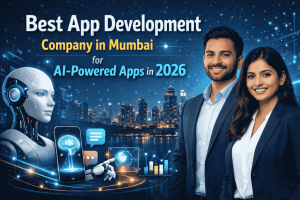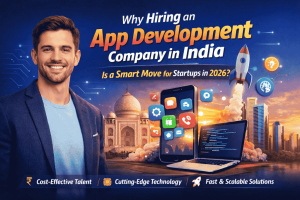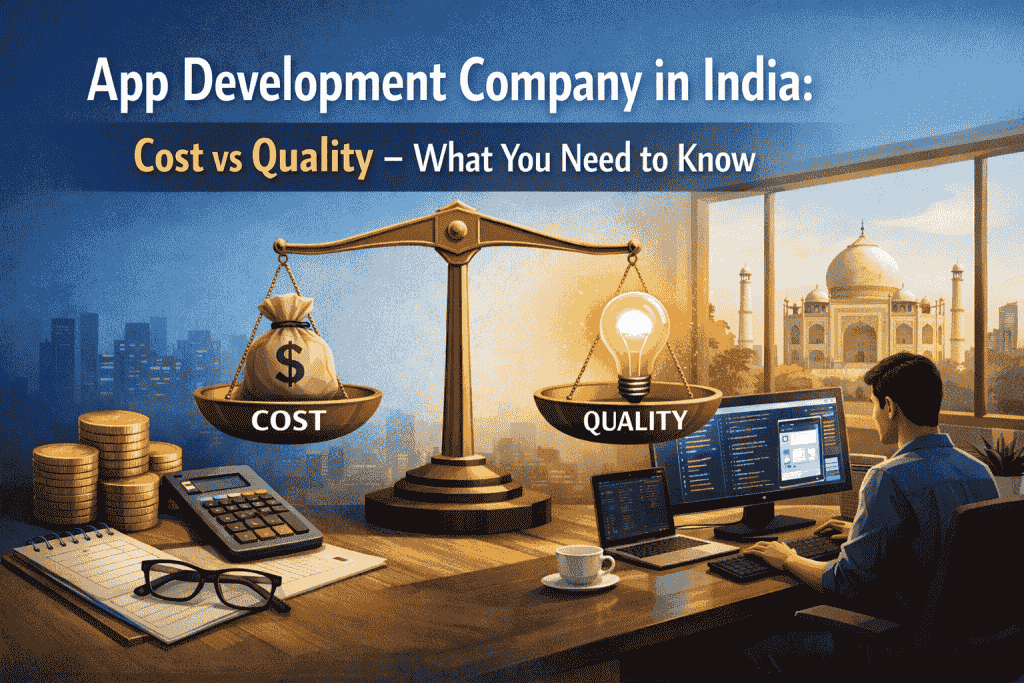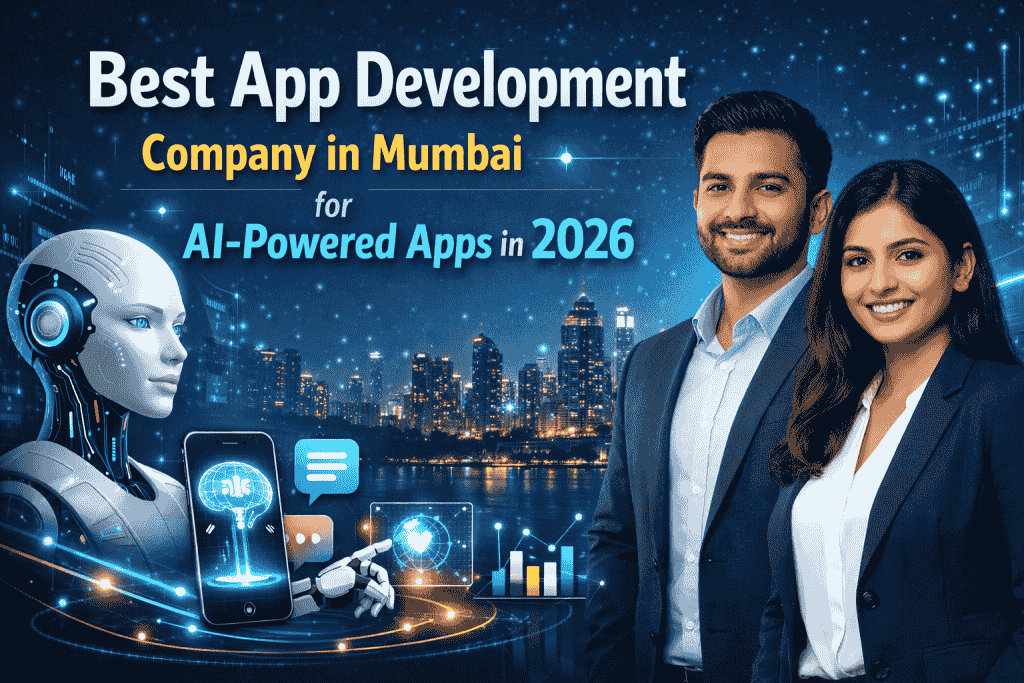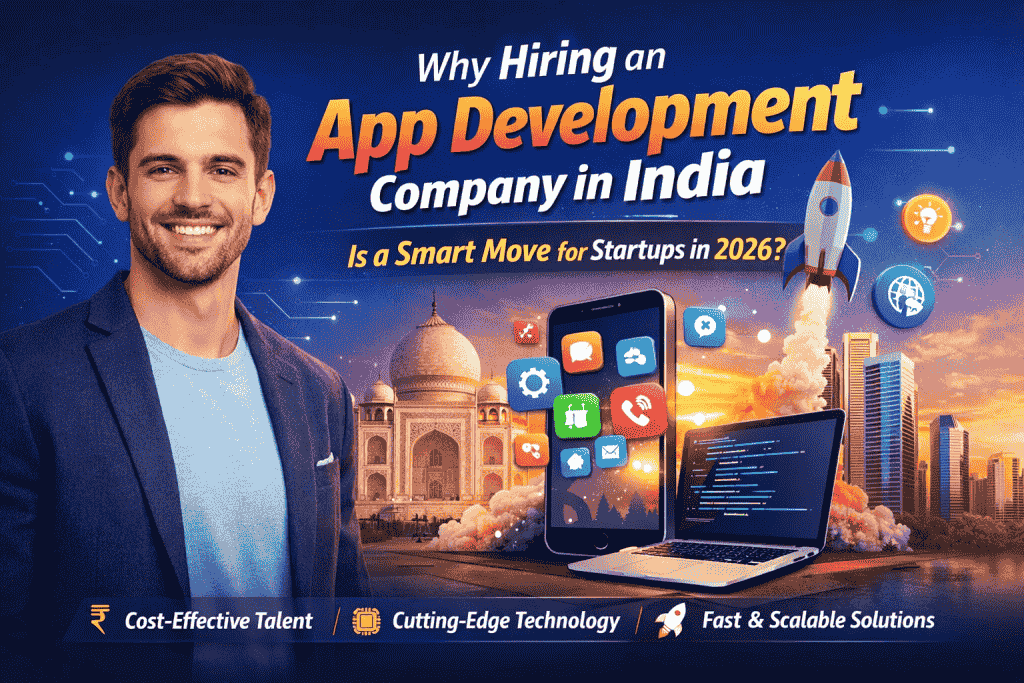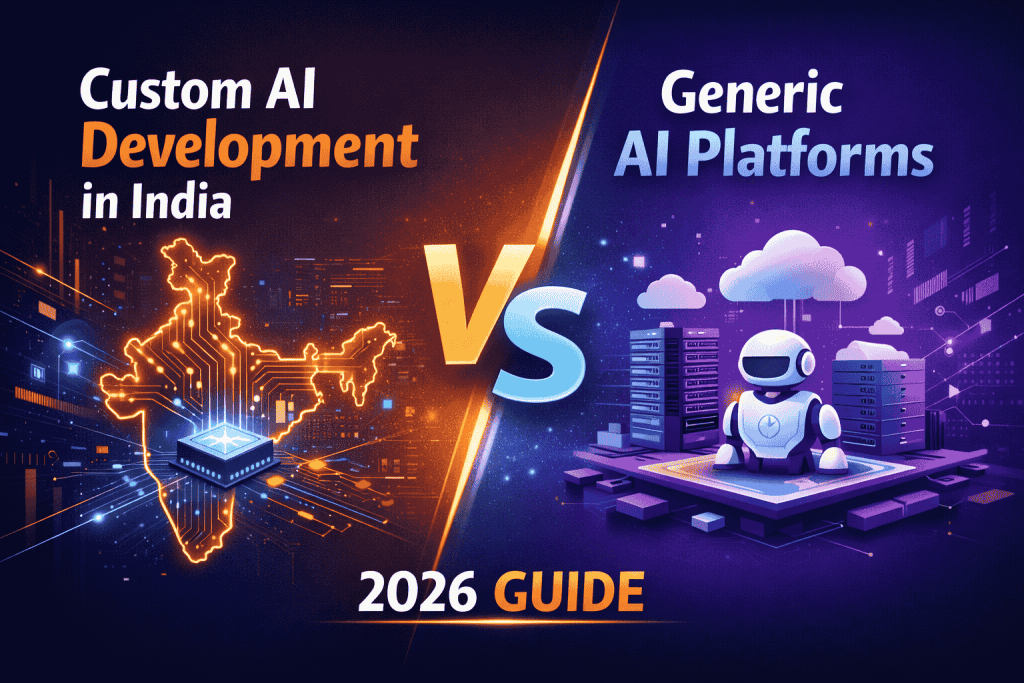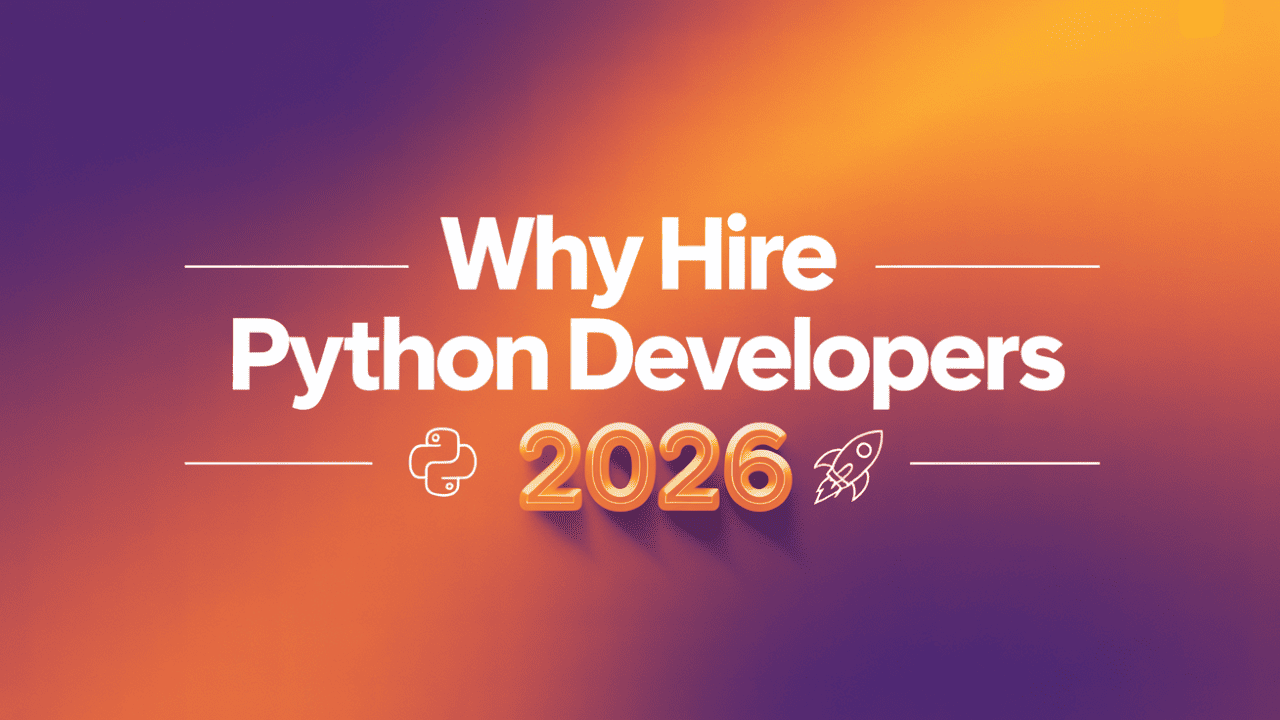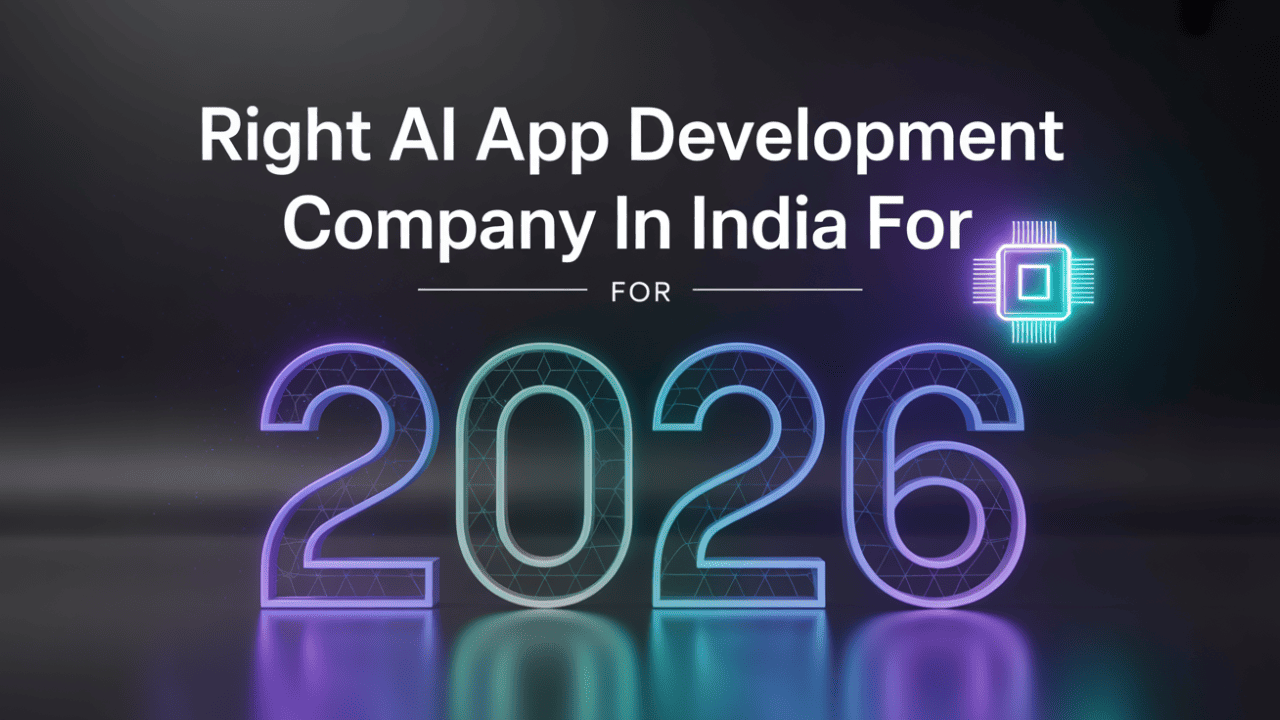Artificial intelligence is really not only a futuristic concept. Over and above that, it’s the driving force behind smarter, faster, and even more efficient enterprise. Businesses are streamlining complex operations, reducing errors made by humans, and boosting productivity across departments just by blending AI in automation and workflow optimization.
From data-driven decision making to predictive management, AI is really transforming how exactly organizations function. For enterprises looking to scale efficiently, integrating AI-powered automation isn’t just a trend; it’s also becoming a core necessity for sustainable growth and competitiveness.
Table of Contents
ToggleUnderstanding AI in Automation and Workflow Automation
AI-based workflow automation is much more than rule-based systems. Indeed, it combines automation and intelligence through various kinds of technologies, including Machine Learning (ML), Natural Language Processing (NLP), and predictive analytics. Traditional automation is grounded in proven procedures, but AI-related workflow optimization is information-driven, change-responsive, and may be enhanced with time.
One example is that AI can automatically categorize emails, process invoices, respond to customer queries with the help of chatbots, or plan logistics routes, and this makes the business even quicker, smarter, and efficient.
Why AI in Automation and Workflow Optimization Matters for Enterprises?
Even the slightest inefficiencies can influence the productivity of the whole enterprise because they propagate within the departments. The use of AI in Workflow Optimization and Automation would come in very handy under this scenario. It can help businesses to make sure that processes flow efficiently throughout the entirety of the process, simplify their complex operations and also reduce their reliance on manual operations.
Here’s how it brings lasting value to organizations:
- Improved Efficiency: AI helps identify redundant steps in workflows and eliminates delays, ensuring faster task completion.
- Better Accuracy: Intelligent systems minimize human errors by continuously learning from data and refining their actions.
- Informed Decision-Making: AI-driven analytics turn raw data into meaningful insights, supporting smarter business strategies.
- Consistent Workflow Management: Automated processes maintain uniform quality and performance, even during high workloads.
- Empowered Teams: When repetitive tasks are handled by AI, employees can focus on creative, strategic, and customer-centric work.
AI works alongside humans, not in place of them. It serves as a trustworthy digital companion that manages the mundane while people are in charge of creativity and decision-making. This collaboration creates an organization that is more flexible, efficient, and prepared for the future.
Read More : The Role of DevSecOps in AI and Cloud Projects
Core Components of AI-Based Workflow Optimization
Several cutting-edge technologies are combined in AI-based workflow optimization to increase the intelligence and adaptability of business operations. Each is essential to increasing productivity and making better decisions:
1. Machine Learning (ML)
ML facilitates prediction and data-driven learning in systems. To increase overall productivity, it recognizes workflow patterns, finds inefficiencies, and recommends more intelligent task routing.
2. Natural Language Processing (NLP)
NLP makes it possible for machines to comprehend and react to human language. It powers tools like chatbots and virtual assistants for more efficient communication by transforming voice inputs, emails, and messages into tasks that can be completed.
3. Computer Vision
AI can evaluate and comprehend visual data, like pictures or documents, thanks to computer vision. Inventory tracking, document processing, and automated inspections all make considerable use of it.
4. Integration of RPA and AI
AI provides decision-making power, while RPA handles repetitive tasks. When combined, they produce intelligent workflows that require little manual labor to manage complicated, end-to-end business processes.
Also read this : AI and Cloud Integration Services
Key Benefits Enterprises Experience
The benefits of incorporating AI into workflow automation are quantifiable and extend well beyond time savings. It reduces inefficiencies that impede growth while assisting businesses in becoming more customer-focused, accurate, and agile.
Here are some key benefits businesses experience:
- Decreased Operational Bottlenecks: AI identifies workflow snags early and reallocates resources or tasks to maintain operational effectiveness.
- Increased Reporting and Data Handling Accuracy: Intelligent systems minimize human error and inconsistency by precisely analyzing and recording data.
- Workflow Monitoring in Real Time: AI-powered dashboards provide real-time information on task progress, allowing teams to immediately detect and address problems.
- Better Customer Experience: Increased customer satisfaction and loyalty are the results of quicker responses, automated assistance, and tailored interactions.
- Improved Compliance: Without continual human oversight, automated tracking and documentation guarantee adherence to standards and policies.
Industry Applications and Case Studies
Automation driven by AI is changing industries by improving the intelligence, speed, and dependability of operations.
- Finance: AI improves fraud detection, expedites approval processes, and ensures compliance through automated checks.
- Healthcare: Facilitates precise diagnosis and automates appointment scheduling and patient record management.
- Manufacturing: Facilitates predictive maintenance and streamlines logistics to minimize downtime and improve the efficient use of resources.
- Retail: Customizes customer experiences while increasing demand forecasting and supply chain efficiency.
Mypcot’s Approach
Mypcot provides AI-driven automation that is customized to meet the demands of every industry, resulting in smooth operations, more intelligent choices, and measurable business impact.
Read More : Choose Indian Companies for React Native App Development
Common Challenges and How to Overcome Them
It’s not always easy to implement AI in automation and workflow optimization. Many businesses encounter real-world obstacles that can impede their progress, but these can be transformed into chances for advancement with the correct strategy.
- Data Silos: AI cannot access all data for analysis when departments use different systems. Connecting all the data points into a single framework will allow for transparent information flow and more intelligent automation choices.
- Employee Resistance: People are frequently hesitant to put their trust in new technology. AI should be presented as a tool that streamlines tasks rather than assuming advantage of existing roles. This transition can be facilitated by open communication as well as practical training.
- Costs of Implementation: The initial cost of developing a full-scale AI system can be high. Businesses can see rapid results by starting with smaller, high-value automation projects before expanding further.
How Mypcot Helps
Mypcot adopts a cooperative strategy, analyzing current workflows, determining reasonable automation objectives, and ensuring seamless integration with the least amount of disturbance. Mypcot assists businesses in achieving cost-effective and sustainable automation success by coordinating AI with real business priorities.
The Future of AI in Workflow Optimization
The next level of AI in automation and optimization of workflow is shown through deeper intelligence and autonomy. Generative AI will automatically enhance the processes where the human input proposes improvements.
By integrating with cloud and IoT platforms, connected ecosystems in which people, data, and machines collaborate in a harmonious manner will be developed. Predictive enterprise workflow in the coming years will anticipate needs, automate decisions and drive business into a new level of creativity and efficiency never seen before.
Why Choose Mypcot for Enterprise Automation?
Mypcot is notable for its well-rounded approach to business strategy and technology. Our goal is to make automation intelligent, useful, and human-centered.
This is what characterizes our strategy:
- Proven Proficiency: years of expertise developing scalable automation systems powered by AI for a range of industries.
- Human-Centric Design: Each workflow is created to complement human abilities rather than to replace them.
- Smooth Integration: AI and automation technologies are integrated with current systems to cause the least amount of disturbance.
- Data-Driven Insights: skilled analytics ensures that each procedure leads to quantifiable business results.
- Constant Innovation: To keep enterprise workflows prepared for the future, we stay ahead of new trends.
Conclusion
AI has evolved into a technological advantage for the business pillar of efficient functions. By introducing AI into workflow optimization and automation, businesses will be able to enhance accuracy and speed up decision-making and grow in a scalable manner without introducing complexity to their processes. It is important to embrace the use of intelligent systems that never cease to learn, adapt, or improve with time.
Mypcot allows businesses to take this change boldly. Mypcot helps companies build smarter processes that are more productive, strengthen teams, and prepare them to work in the age of smart automation by creating a delicate balance between AI innovation and practical application.

